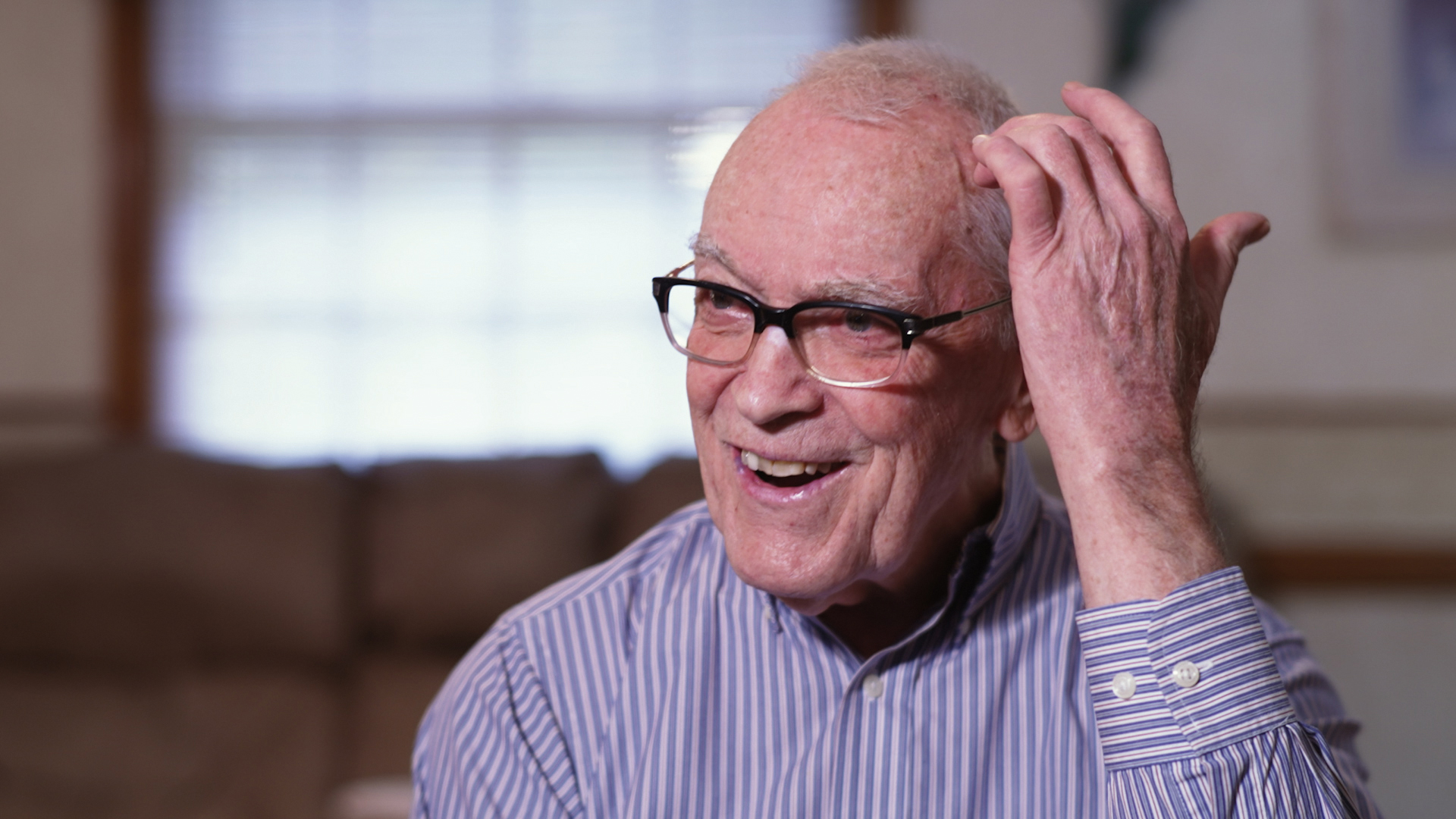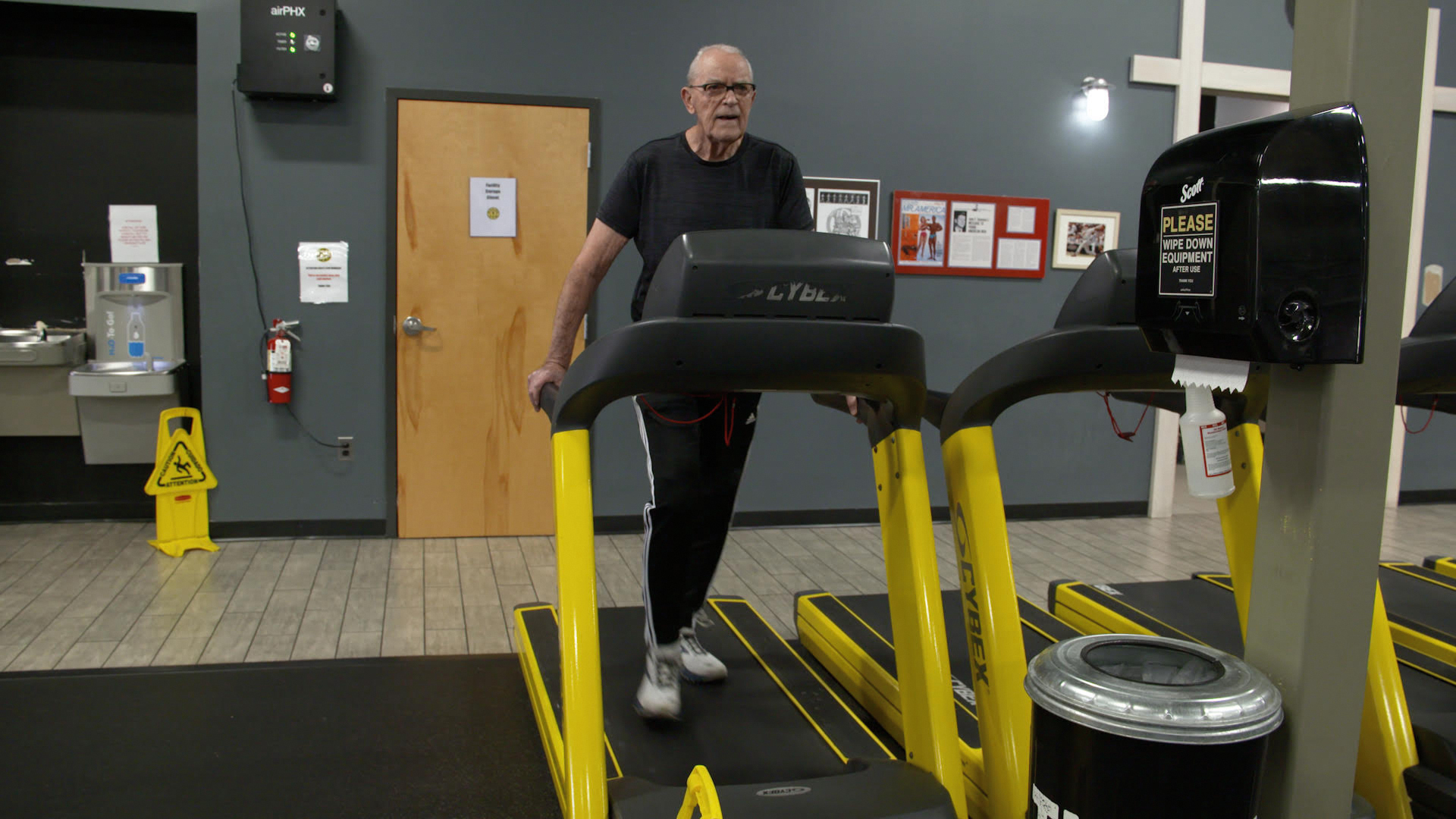
Patient Perspective: Ross Southers
By Sara McCloskey, VCU Health News
Like clockwork, you can find Ross Southers at the gym on a treadmill several days a week. The Richmond firefighter didn’t want to take retirement sitting down when he left the department nearly 25 years ago.
The first time, I was coming off the pad and couldn’t even make half a circle. After another 30 minutes, they handed it to me and everybody in there applauded because I made a perfect little circle.
Ross Southers, VCU Health patient
But Southers’ routine started to change five years ago when his essential tremor, which had been diagnosed years before and at the time was very mild, got worse.
“I shook so bad that I could hardly function. My wife would fix my plate for me, and I would drop it all on my lap. I couldn’t go to a restaurant anymore. It was very embarrassing,” he said.

Southers was referred to VCU Health. His treatment journey led him to become the first VCU Health patient to receive an innovative surgery, called focused ultrasound, which had immediate results — helping him return to the gym and share meals more comfortably with loved ones.
When patients like Southers come to VCU Health’s neurosurgery department, they’re educated on a variety of treatment options. They also can expect to have a detailed conversation with their surgeon about what is important to them during their treatment journey.
“The sad fact is the medications typically do not work that well, and especially as the disease progresses,” said Kathryn Holloway, M.D., director of VCU Health’s deep brain stimulation program and one of Southers’ surgeons. “If the patient is not responding to medication, then we consider a surgical procedure.”
Essential tremor can typically be treated with focused ultrasound, or another procedure called deep brain stimulation, in which electrodes are surgically implanted onto the brain.
“VCU Health was one of the earliest sites in the country to do deep brain stimulation and to demonstrate that surgical intervention was a viable option for many of these patients,” said Paul Koch, M.D., a VCU Health neurosurgeon who was part of Southers’ care team. “Because of the comprehensive team involved, we have been treating these conditions surgically for a very long time.”
After being reviewed by his care team, Southers found out he was not a good candidate for DBS due to fragile blood vessels. However, he was eligible for focused ultrasound.
During the focused ultrasound procedure, the patients are taken out of the MRI scanner about every 30 minutes to see if they are feeling side effects, like weakness or tingling in the hand, and to test for any improvements. To do this, they are asked to try to draw a circle on a piece of paper. The results are almost immediate.
“The first time, I was coming off the pad and couldn’t even make half a circle,” Southers said. “After another 30 minutes, they handed it to me and everybody in there applauded because I made a perfect little circle.”
Being able to see a treatment work so quickly doesn’t happen often in hospitals, making focused ultrasound different than other types of surgeries and procedures.
“For DBS, there’s the procedure, there’s the recovery, there’s turning it on and there’s titrating it,” Dr. Koch said. “What makes focused ultrasound sort of more instantaneously gratifying is how immediately we see the effects and how little trouble the patient has had to go through to get to that point.”
It takes a whole team to care for the patient, including neurosurgeons, neurologists, nurses, speech and physical therapists, and MRI technicians. Patients are checked by a physical therapist after this procedure due to potential balance issues. Southers immediately passed with flying colors.
“Our patients are reaping the benefit of this team approach that makes VCU Health so unique,” Dr. Holloway said.
For Southers, tremors are no longer holding him back from his passions. With a speedy recovery, he is back at the gym three days a week, hitting the treadmill for an hour each day. The physical routine is important for Southers since he doesn’t want to take retirement sitting down.
“I refuse to stop, but I’m a nut at it. Been doing it for 25 years,” Southers said. “I won’t quit till I can’t move.”



